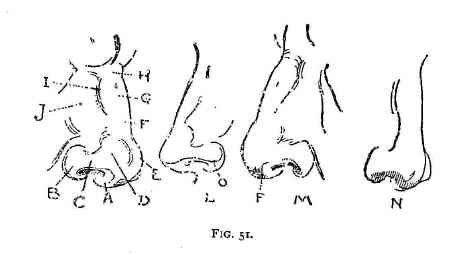[SPOILER ALERT]
In the end, it is discovered that her parents placed pins into her brain in an attempted murder, because China had a one-child policy, and the parents wanted a boy.
When her adoptive parents hear the diagnosis, they request that she not be told that her parents attempted to kill her because they didn't want her. They understand her to be emotionally fragile and fear that she may react badly, especially as she had history of alcoholism and smoking. However, the doctor explains that the pins pierce through specific areas of her brain, including her addiction centre (I'm guessing the VTA / some part of her mesolimbic system).
"She may not be as fragile as you think," the doctor says.
"We know our daughter," they respond.
He says, "It's not her fault, she's not who you think she is."
[/SPOILER ALERT]
How much of how we behave is really comprehensible to the people around us? It's so easy to look at someone who's a drug addict, or who's got problems stealing, or with violence, and to say, "I'm not like that. How can they go about ruining their life like that..." It's so easy to judge others, and delineate them as different from ourselves.
But do we really understand exactly what's going on in their lives, in their minds? How much of what they think and do is really of their own volition? If you were placed in that situation, with that brain chemistry, can you say with conviction that you would choose to not be a druggie?
In fact, when you stop and thinking about it, how much of what we think is in our conscious control? That girl had physical, metal pins in her head that affected her and caused her to behave differently than what is biologically considered to be normal. But we have pins too. Maybe they don't seem to be there in a literal sense, but our genes code for our neurocircuitry, and much of our behaviour is learnt and imprinted on us by our environments. Although it may be slippery slope to say that free will does not exist, perhaps it is a less evenly free playing field than we imagine it to be for the other person.
It seems strange to think it, but I think what Sara Crewe, a privileged heiress, says about Becky, a poor servant girl in the same boarding school, about sums it up:
"Why," she said, "we are just the same--I am only a little girl like you. It's just an accident that I am not you, and you are not me!"
- A Little PrincessIt is a scary thought, perhaps. Especially when we pause to consider that we are not so very different from the people we disdain or dislike, as much as we would like to believe it. In reality, there is perhaps little besides God's grace, or "accident", that separates one person's personality or fortune from another., Chapter 5, Frances Hodgson Burnett
But ultimately, I think these thoughts point us in quite a refreshing direction in attempting to relate to other people: understanding, respect and love. Even of the less than loveable.


